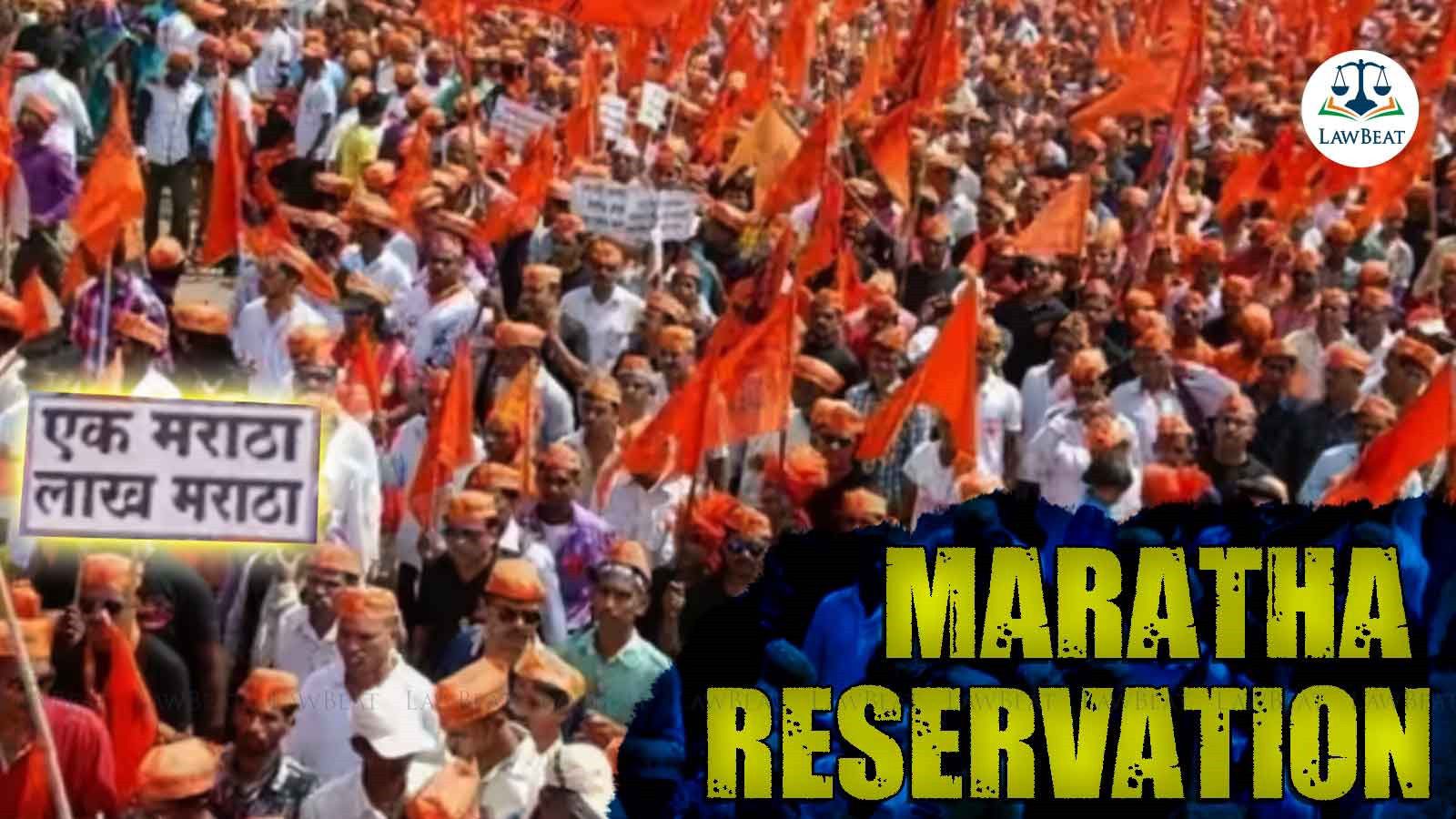Bombay HC Denies Urgent Order in Maratha Reservation Case

The court adjourned the matter to June 13, 2024, after the Lok Sabha Elections, for further deliberations noting that Advocates General and mediators are yet to present their arguments in the case
In a pivotal development, the Bombay High Court declined to issue an urgent order concerning the reservation granted to the Maratha community. The court also clarified that any admissions to educational institutions or job appointments made under the quota would be contingent upon the final outcome of the petitions under consideration.
The order was made by a three-judge bench led by Chief Justice DK Upadhyaya and including Justice Girish Kulkarni and Justice Firdosh Pooniwalla, hearing the batch of Public Interest Litigations (PILs) and civil writ petitions concerning the constitutional validity of the Maharashtra State Reservation for Socially and Educationally Backward Classes Act, 2024 (Maharashtra Act XVI of 2024).
Notably, the legislation, passed on February 20 by the Maharashtra legislature, allocated 10% reservation for the Maratha community under the Socially and Educationally Backward Class (SEBC) category in government jobs and education. Following the legislative decision, the Governor issued a notification on February 26. However, the High Court was faced with a series of petitions both opposing and supporting this reservation policy.
Senior counsel Pradeep Sancheti, representing one of the petitioners, stressed the urgency of the matter, especially regarding admissions to various courses scheduled for June. Sancheti pointed out previous instances where delayed hearings allowed Maratha community members to benefit from the reservation scheme, complicating potential reversals if the petitions opposing the reservation were successful. He also contended that the Shukre Commission had utilized an incorrect methodology during its survey, leading to the misinterpretation of gathered data.
Chief Justice Upadhyaya responded cautiously to Sancheti's concerns, stating, "We can't preempt anything. We will see at the time.” Meanwhile, the court instructed the state government and petitioners to file their respective affidavits in reply within three weeks. Following this, any rejoinder to the filed affidavits, if deemed necessary, may be submitted by the petitioners within two weeks thereafter.
The court further directed the relevant authorities to inform prospective candidates applying for positions advertised that their applications would be subject to court rulings.
The court adjourned the matter to June 13, 2024 for further deliberations noting that Advocates General and mediators are yet to present their arguments in the case.
This recent decision follows a prior ruling in March, where the High Court refrained from imposing an interim stay on the recruitment process for police constables and medical NEET examinations. The court emphasised that applications received under the advertised positions would remain subject to further judicial orders "in the interest of justice.”
During the previous hearing, Senior Advocate Arvind Datar argued against the constitutional validity of the Maratha reservation, citing the Supreme Court's 1992 ruling that set a 50% cap on reservations. Datar contended that the state lacked the authority to implement a 10% quota for the Maratha community, asserting that such a decision could only be made by Parliament through a constitutional amendment.
Datar further argued that a recent Supreme Court ruling from May 2021 had categorised Marathas as a dominant and forward class, precluding the state from designating them as backward. He cautioned against exceeding the 50% reservation mandate, emphasising the need for careful consideration, as demonstrated by previous instances in the state where 2% reservation was provided to certain communities under exceptional circumstances.
Advocate Gunratan Sadavarte, representing a petitioner, echoed Datar's concerns about the validity of Section 3 of the SEBC Act, which extends reservation to all direct recruitments and appointments in public services and posts in the state. Sadavarte argued against the state's creation of a new SEBC category specifically for Marathas.
Furthermore, Sadavarte questioned the constitution of the commission and criticised its reliance on a sharp increase in girl child marriages to justify Marathas' "social backwardness." The implementation of the Maratha quota, combined with the central EWS 10% quota, would result in a total reservation of 72% in education and jobs within the state, as argued during the proceedings.
Also worth noting is that Bhunjagrao Pawar, one of the petitioners had previously submitted a petition to a division bench presided over by Chief Justice Devendra Kumar Upadhyay and Justice Girish Kulkarni. However, at that time, Justice Kulkarni abstained from hearing the petition. On April 15, Pawar filed another petition, contending that Justice Kulkarni should not preside over the hearing as he was the petitioner. Despite Pawar's plea, the court denied his request, asserting that there was no correlation between the two cases. The prior case concerned a societal dispute regarding reservation for the Maratha community, distinct from the current matter. The court dismissed Pawar's application, emphasising the absence of personal relevance to the issue at hand.
Cause Title: Bhausaheb Bhujangrao Pawar v State of Maharashtra [PIL No 30 of 2024]
